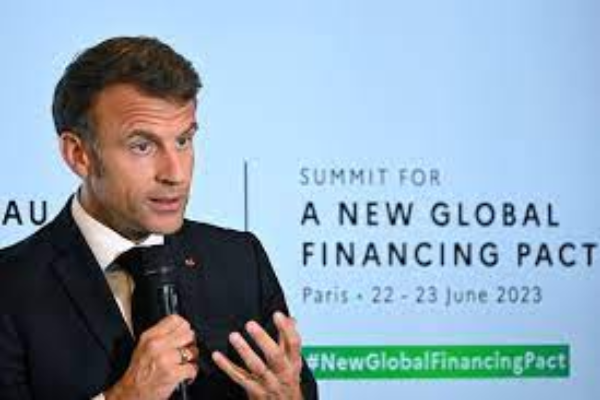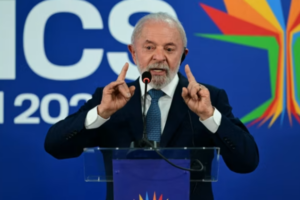French President Emmanuel Macron hinted on Friday at a renewed push to change the international taxation structure in order to fund climate measures.
Macron spoke on the sidelines of the Paris Summit for a New Global Financing Pact, where participants from across the world are debating how to restructure the international financial system in order to collect funding for climate adaptation and mitigation efforts.
Leading French economists’ calls for a new wealth tax to fund the battle against climate change have sparked discussion within Macron’s government.
Read Also
Macron dismissed the idea that France could introduce a climate tax on its own, saying: “It doesn’t work when you do it alone, the [financial] flows go elsewhere.”
During his closing remarks at the financial pact summit, Macron said the OECD club of rich countries would be an appropriate framework for negotiations, noting that countries had used the Paris-based Organisation for Economic Co-operation and Development to reach a deal on reforming global taxation for large multinationals.
There has been a great deal of discussion on the idea of international taxation, over and above what countries and institutions are doing. Whether it’s on financial transitions, maritime transport or certain other modes, it will only work if it’s truly international, and so it presupposes an agreement, as we’ve been able to do on international taxation, he added.
Talks are ongoing at the International Maritime Organization on introducing a global tax on shipping, however it is unclear whether any revenue raised would go to decarbonizing the shipping industry or supporting climate initiatives in poorer countries.





